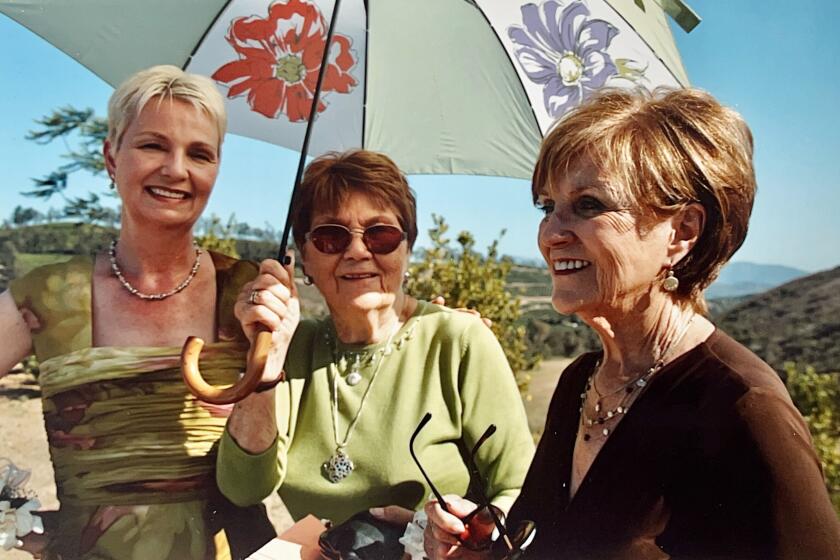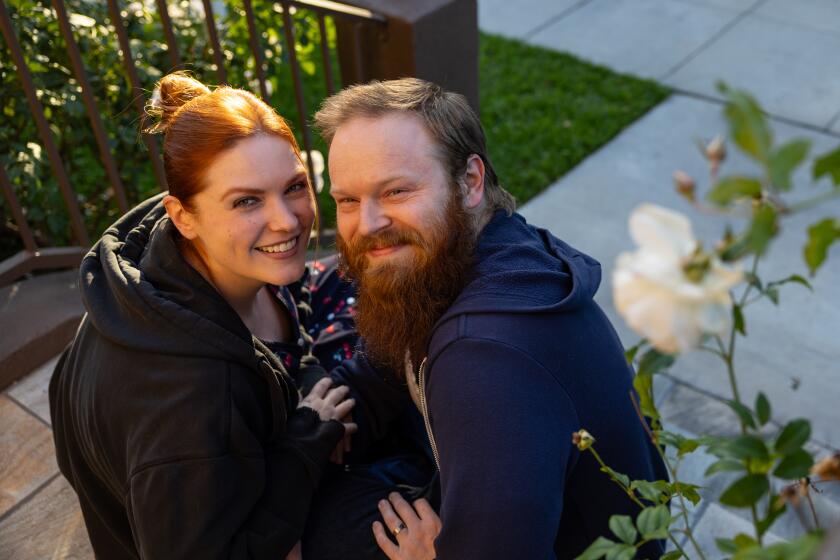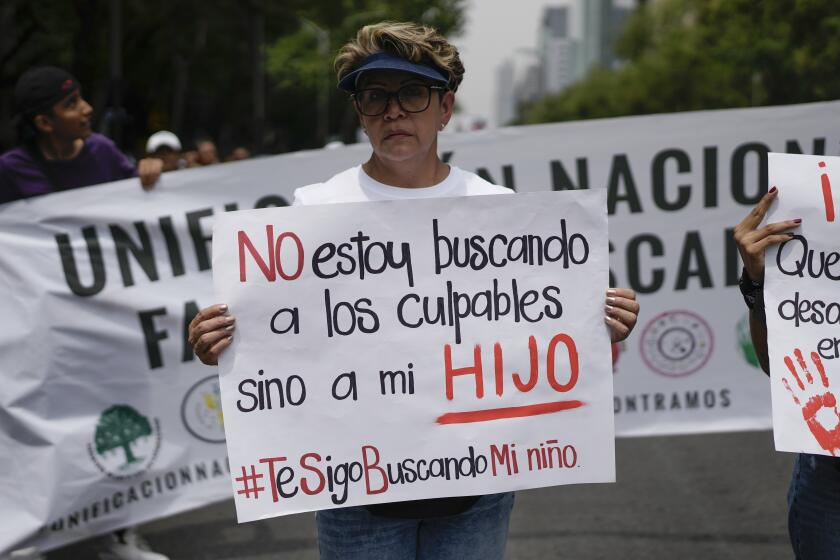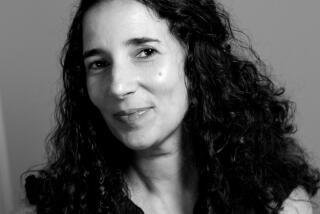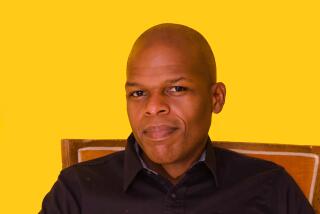Opinion: What’s a grandmother to do when her grandchild lives across the country
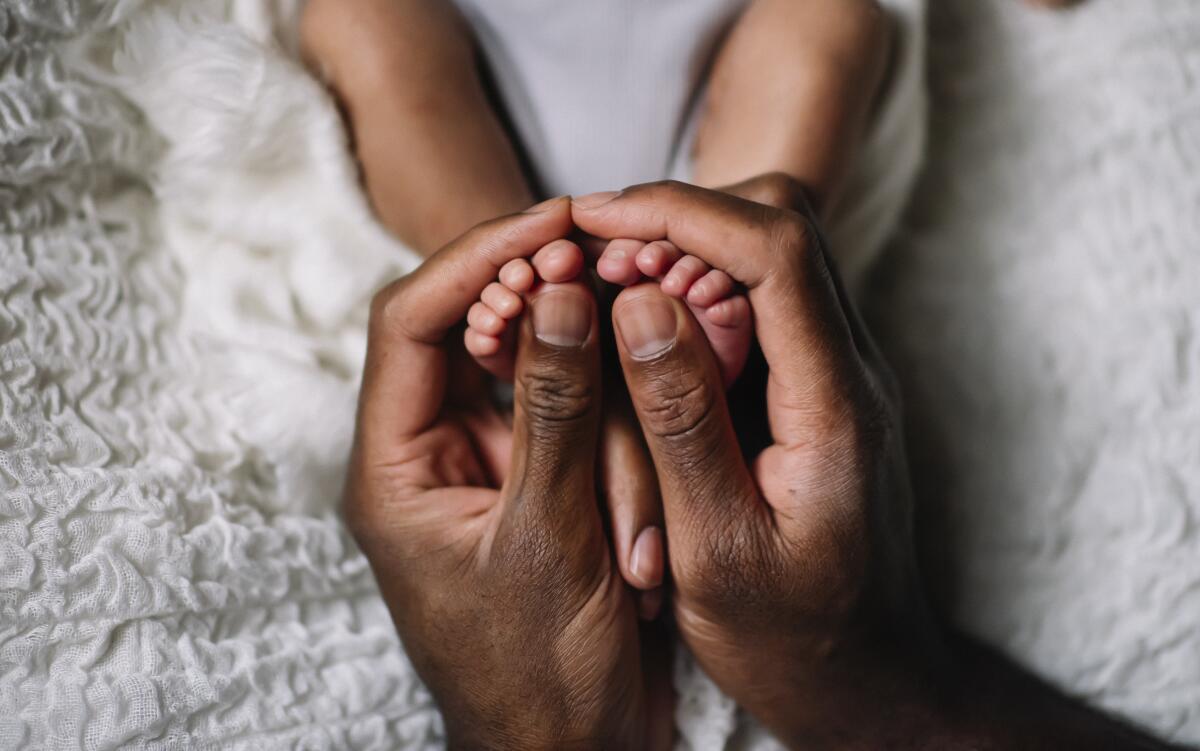
- Share via
I finally have come to grips with the fact that my son has sex. He’s 30-something and recently became the father of an adorable baby girl, Ada Irene. This is all now serious business in the cycle of life.
When your child becomes a parent, it’s a tectonic shift. There’s no turning back for my son or me. He’s another human being’s father. In becoming a parent, he’s made a generational crossing of sorts, pulling other family members with him. Instantly there are new roles for everyone. His wife becomes a mother; his sister, an aunt; and my husband and me, grandparents.
For a family established by immigrants, there’s an extra dimension of grief when those who were born in the old country are gone.
I find myself full of intense love for this child created by my child. She’s gifted, I’m sure, and already has a great sense of timing. She delayed her birth by two weeks to enter the world on my birthday. And based on how she chews the edges of her “Good Night Moon” book, she’s going to devour the best in literature, soaking in knowledge and wisdom wherever she can.
She laughs with joy when her name is called. As the third “Ada” in my large Black family, she seems to instinctively know that her name honors two of her great-grandmothers and five generations of strong determined women who paved a path for her.
In a small way, she also represents how far America has progressed in just one generation. Ada and I share a birthplace as well as a birthday: Virginia, just outside of the nation’s capital. Ada lives with her parents about two miles from my childhood home. Her mother is white, and her father is Black. During the first 15 years of my life in Virginia, it would have been a crime for her parents to have been married in the state.
Birth rates have been trending downward in the U.S. for several decades and dropped precipitously during the pandemic. A key reason is the high cost of raising kids.
I like to think of little Ada as a hopeful symbol of reimagined possibilities. A trendsetter bridging an ugly history of racial divisions. Back in 2017, the Pew Research Center placed the number of multiracial or multiethnic infants born in the United States at more than one in seven, nearly triple the share in 1980 and rising. In 2021, Census Bureau put the total mixed-race share of the population at 10%.
So Ada is on the leading edge of positive change. But even her non-symbolic self is amazing. So amazing that I have a serious case of the grandma blues.
First, there’s the issue of distance. I’m in Los Angeles. Ada is in Virginia. It’s a cruel and unfair geographic mismatch. I blame Ada’s grandfather, who years ago grabbed my heart and squeezed it with such intensity that I shamelessly followed him across the country.
Hundreds of mothers of missing people marched through downtown Mexico City to mark a sad commemoration of Mother’s Day.
But I’m at fault, too. I encouraged Ada’s California-born-and-raised father to go east for college, to experience life beyond the West Coast. He was supposed to come back but he never did, and it looks like he’s keeping Ada with him. I love California, but Ada’s birth has taken a little of the shine off the Golden State.
Still, it’s time that’s really got my grandma jaws tight. Time is not on my side. If I’m lucky, I might be around, and still with it enough, that I could make it to Ada’s high school graduation. It’s a slim chance that I could see her graduate from college without being wheeled in and propped up. But there’s so much of her life I will miss, and I feel cheated.
Ada’s birth has made me question my own decisions about when to become a parent. Waiting eight years after getting married to have her father now seems like a waste of time. I wanted the time to find myself, focus on my career, be a more mature mother. Blah, blah, blah. Sounds pretty self-centered now. I became an older mom, and now I’m an old-ass grandmother.
If I could rewind the tape and have eight additional years with Ada instead of “finding myself,” I might have had a shot at watching her start a career, attending her wedding, and making a toast.
Transitional Kindergarten is free and taught by teachers with a higher level of education than those teaching preschool. But students are expected to be more independent, and the curriculum may depend a lot on your district.
“To my lovely, smart, talented granddaughter, Ada Irene. From the beginning, we shared a birthday and love for, the first man in your life, your father, my son and your mother’s husband.”
Finding the right partner for Ada will take some time though, given that she’s gorgeous, will have high standards, not take anything off anybody who wants her love, and will want to meet the expectations of her grandmother.
Despite my grandma blues, it’s hard to stay in a funk around Ada. She is so present in the now. Fascinated by lights, sounds and sights of a world she’s discovering bit by bit every day. Her innocence and glee is a reminder that while we can’t stop the march of time or solve all the problems of this troubled world she’s entered, we can choose how we want to spend the time we have.
So while I’m not certain how many birthdays Ada and I will get to celebrate together, I’m going to make the most of the ones we do have by blowing out our candles in unison at every opportunity. And wishing for love and peace for Ada now and in the future.
Judy Belk, former president and chief executive of the California Wellness Foundation, is at work on a book of essays about growing up 10 miles from the White House.
More to Read
A cure for the common opinion
Get thought-provoking perspectives with our weekly newsletter.
You may occasionally receive promotional content from the Los Angeles Times.
